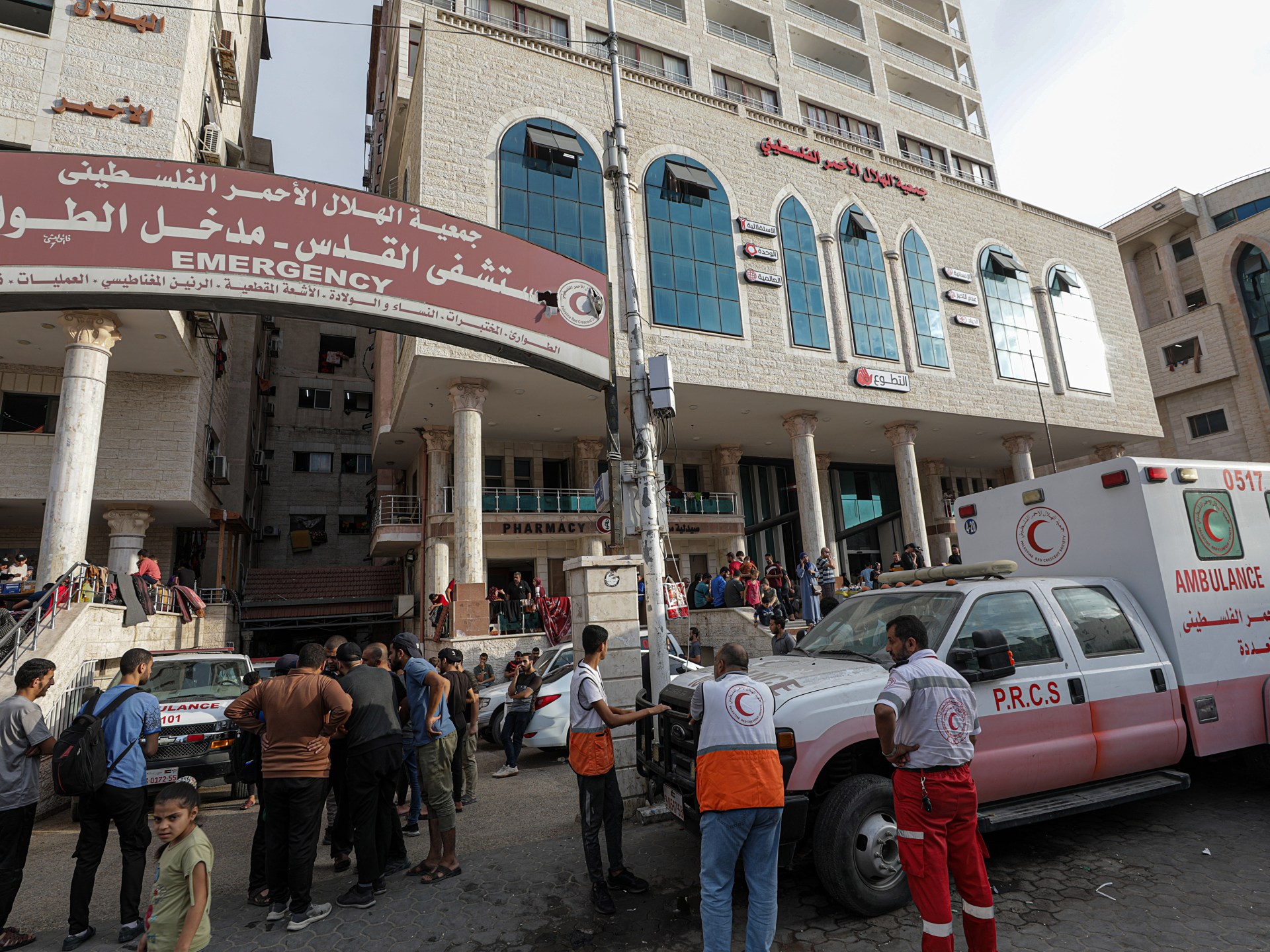
The opinion polls are neck and neck ahead of Sunday’s presidential election in Argentina. In the runoff, Sérgio Massa, the centrist candidate from the ruling Peronist coalition, will face far-right libertarian Javier Milei.
In the first round of voting in October, Massa – the current finance minister – won 37 percent of the vote. Milei, on the other hand, only convinced 30 percent of voters. To win in the first round, candidates must receive 45 percent of the vote.
Last month’s result surprised many political pollsters, given that Massa presides over an economy with an inflation rate of 142.7 percent, coupled with simmering frustration with Argentina’s Peronist establishment.
In addition to timely care HandoutsMassa’s opening victory was influenced by a successful marketing campaign that warned of a rise in utility prices if Milei, which has pledged to roll back government subsidies, wins.
Milei, a former TV personality turned congressman, is a political outsider who has drawn parallels with Donald Trump. Along with his hardliner candidate Victoria Villarruelm, Milei downplayed Argentina’s atrocities Military dictatorship.
Its success was fueled by years of economic frustration. With four out of ten Argentines now living in poverty, the economy is heading for its sixth recession in a decade. Inflation, a key concern for voters, is in triple digits and rising.
“Prices of basic goods have skyrocketed,” said Jorge Lopez, a taxi driver from Buenos Aires. “With the money I earn, I can buy less and less. It’s just not enough and it’s getting harder and harder to make ends meet.”
Still, Miles’ populist rhetoric has proven divisive. In a country where two-thirds of the population is Roman Catholic, his unflattering description of the pope, an Argentine, as a “left-wing son of a bitch” angered moderate voters. He has also advocated for the sale of human organs.
Although Massa is part of a left-wing Peronist government, he represents the more centrist wing of the party.
Peronists, who first came to power in 1946 under the populist General Juan Perón, have been Argentina’s dominant political force for decades. Today, Peronism represents a patchwork of economic programs, including state industrial policies and subsidies for basic goods.
An experienced mediator, Massa is seen as someone capable of negotiating across the political aisle. In August, the company successfully brokered a $7.5 billion payout from the International Monetary Fund (IMF).
The two candidates have different views on virtually all economic issues, including the size and role of government.
“Another debt restructuring likely”
“Massa will follow the Peronist line and try to reduce subsidies without endangering the welfare state,” says Pablo Bortz, professor of macroeconomics at the University of San Martín.
Massa, who remains in charge of the state treasury, spent heavily in the run-up to October’s elections. He expanded income tax exemptions, increased benefits to informal workers and gave pensioners $100 – at the official exchange rate, which is 2.5 times lower than the informal gray market rate.
Of course, many of these measures are likely to be reversed after December 10, when a new government takes office. “Massa is aware that he has to implement austerity measures … he is now talking about a budget surplus of one percent of GDP next year,” Bortz said.
Last year, Argentina ran a budget deficit of 2.4 percent of GDP, with spending exceeding revenue.
Argentina still owes the IMF about $43 billion and external bondholders $65 billion in restructured debt 2020. Looking ahead, numerous commitments are due in 2024 and 2025. “To repay this debt, Massa has indicated gradual fiscal consolidation,” Bortz added.
Milei, meanwhile, has promised to cut government spending by a whopping 15 percent of GDP. His austerity programs would focus on eliminating subsidies for utilities such as gas and electricity. He has also hinted at privatizing state-owned companies and cutting public health spending.
“Obviously this radical program has scared away some voters,” Bortz said. “Given Peronism’s support in Congress, Massa’s plan is more politically viable. But even if he wins, he would have to contend with very low reserves and no access to international capital markets.”
Argentina’s Central Bank (BCRA) has reduced its foreign exchange reserves to support the economy Weight, which has suffered from severe devaluations in recent years. This, in turn, has undermined the government’s ability to repay its debts.
“I think another debt restructuring is likely next year, regardless of who wins. To get the debt back on a sustainable path, the government will have to impose austerity measures and economic reforms, which could lead to protests. Still, they will be much tamer if Massa wins,” Bortz added.
“The prices are so high”

According to Malena Pesce, a teacher who works in San Isidro, a suburb of the Argentine capital: “The prices are so high that they affect how much food I can buy.” Even leisure activities such as eating out or going to the cinema with me I had to limit children.”
Inflation is nothing new in Argentina and averaged 50 percent in the period 2018-2022. The further price increase since then can be attributed to several factors.
The war in Ukraine and the US Federal Reserve’s subsequent tightening campaign led to a fall in the value of the peso, making imports more expensive. Then a severe drought earlier this year wiped out millions of acres of corn, wheat and soy, depressing peso demand even further.
Argentina also has a history of fiscal negligence. Since independence in 1816, the government has defaulted on its debts nine times. During periods of stress, authorities have regularly resorted to printing money to finance the deficit, which can boost inflation.
Massa himself oversaw central banks printing money to offset budget deficits. On this point, Milei said that “the abolition of the central bank is essential.” He sees the BCRA as encouraging inflation and being captured by the state.
“Milei’s plan to overthrow the central bank is highly risky and would mean the loss of monetary authority in Argentina,” Matias Vernengo, a former BCRA official, told Al Jazeera.
To implement his plan, the self-proclaimed “anarcho-capitalist” has floated the idea of abandoning the peso, which he describes as worth less than “excrement,” and turning it into a dollar – and introducing the greenback as Argentina’s only legal tender.
However, such a move would mean “removing the ability to borrow in our own currency and tying ourselves to the US money supply… which would limit our ability to pursue the expansionary growth policies that Argentina needs,” Vernengo said.
“Dollarization would also require dollar holdings as a liquidity buffer. Just like the BCRA did dwindling reservesAbandoning the peso risks causing a real currency collapse, nervousness in the banking sector and social unrest. It could be catastrophic,” he added.
“Massa’s approach of reducing central bank resources and reducing the country’s deficit is more likely to stick. However, he has to be lucky to lower the prices. If the Federal Reserve were to cut interest rates next year, that would certainly help,” Vernengo said.
Monetary policy was the most discussed political issue in this election. “Controlling inflation in Argentina is far from easy and I expect prices to continue to rise no matter who wins. However, we could end up in hyperinflation if Milei gets his way,” warned Vernengo.
Pesce, the teacher, remained positive: “Despite everything, I remain optimistic about Argentina. “I hope that one day working people will be able to buy groceries and pay their bills, maybe even go on vacation… to meet the basic needs of a decent life.”






Recent Comments